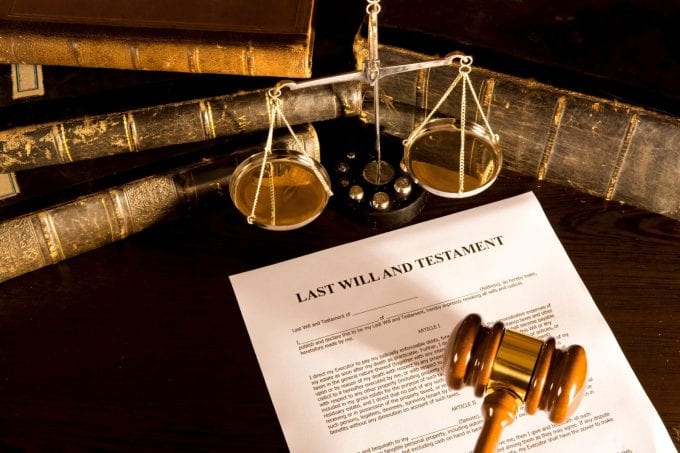Inheritance is a complex and confusing process in itself. The problems are created not only by the notary’s legal registration in the legal and correct order but also by the immense emotional stress caused by the death of a loved one. Nervous, as well as because of the complexity of the procedure itself, conflicts can often start to erupt. The main reasons for disputes are the pure greed of some heirs, and also the intervention of third parties in the distribution of property or even commonplace injustice. Inheritance is carried out by law or by will. This process is a complicated procedure involving the need to prove inheritance rights.
Why they arise?

If the testator had several heirs, then conflicts between them can often arise. Among the common causes of hereditary disputes are:
Lack of documents for inheritance property
An inheritance dispute can arise if the heirs do not have proper documents of that property. If the legal papers are not appropriate, the heirs will have to consult their lawyer and claim that they are the legal heirs of the estate. They have to follow the court procedures.
Absence of a valid WILL

Most of the people do not prefer to make a WILL regarding their properties, and when they die, an inheritance dispute arises among his legal heirs. There are also some cases when a person dies accidentally or uncertain that he doesn’t get the chance to make a valid WILL for his heirs.
Setting up a trust is another good option for those who want to legally pass ownership of your assets to beneficiaries. According to Castle Wealth Management, a trust will outline the terms of asset distribution without involving the courts. Trusts are also popular estate planning tools because they avoid public court records and the benefits of the trusts are distributed sooner.
A disagreement of the heirs
If a person died and left his WILL for his property but, he didn’t inform his heirs about his WILL, there is a chance of arising an inheritance dispute. The heirs may disagree with that WILL, and it can lead to a conflict.
Lack of information about the relationship with the testator

If there is not enough information about the relationship of the heirs and the testator, it may cause an inheritance dispute between the heirs. They can arise a question about the authenticity of the relationship with the testator, and finally, a dispute will arise.
Ignorance of the current legislation
Sometimes people do not have awareness about the current legislation and do not pay attention to it. When a person dies without declaring his legal heirs for his property, a dispute arises.
How to Resolve an Inheritance Dispute

Destructive behavior, of course, depends on education, but we can control the rest. How?
Make a valid WILL
According to Omega Avocats, the most important thing to resolve the inheritance conflicts and disputes is to make a WILL. A WILL is a legal document declared by a person who owns some property. A WILL allows the property owner to maintain the legal heirs of his estate after his death. Usually, the legal heirs are his blood relations like wife and children, but he has the authority to give his property to anyone he wants to. Every person who owns an asset and has his legal heirs should make a WILL to protect his family from disastrous disputes.
Discuss your WILL with the heirs

It is possible to significantly reduce the likelihood of conflict by bringing the heirs the motives for the decision of the head of the family. If the reasons are clear, the choice seems fairer.
The property owner should allow the heirs to participate in this decision. The head of the family can report on the principle based on the will. (property equality, support for the weak or motivation of heirs), as well as his proposals on the set of assets that everyone will get. And children, in turn, can express their thoughts, which do not violate the basic principle. Doing this will help in formulating a mutually acceptable solution. This significantly increases the moral price of escalating the conflict, and therefore reduces its likelihood.
Negotiation
Many family inheritance disputes can be resolve through mediation, in which both the disputed parties meet with their lawyers and attempt to negotiate an agreement by mutual understanding. If both of the parties agreed on the same terms. You can solve the conflict within lesser time and cost.
Following the Court Proceedings

If the disputed parties are not able to resolve their inheritance issue with negotiation, the heirs can take the dispute to the court where the professional lawyers do all the proceedings in front of a judge. Here the conflict is presented from both parties, and the judge gives his decision based on proofs and documents. This procedure may be costly for them, so it is better to resolve your inheritance issues on the negotiation level.
Do proper documentation of your properties
Documentation of the assets is an essential thing, especially in the case of inheritance. If the documents of the inheritance property are not clear, a legal issue will arise, and the heirs may get in trouble even for their own parent’s property. So, a property owner needs to make all his legal papers regarding his ownership of the property.
Seeking Expert Legal Advice

Enlisting the help of an expert contentious probate solicitor can be instrumental in settling family disputes over inheritance. Given complexities involved with these disputes, it’s best to do this as early as possible regardless of whether you’re making a claim or defending against one.
Other Suggestions to Avoid Inheritance Disputes
One should consult his attorney when he is going to make any changes in his estate plan. You should avoid all the mistakes to prevent dispute inheritance entirely. Care is better than cure. Here are some other suggestions to keep the estate settlement procedure a friendly one:
- Create a Personal Property Document to address who should inherit private property – especially with items with sentimental value, as these are frequent reasons for personal disputes.
- Review your asset titles to make sure the ownership type is what you intend.
- You should update your estate plan regularly to account for changes in beneficiary descriptions or wishes for the distribution of your properties.
- Select an executor for your estate who will be able to negotiate between beneficiaries.









